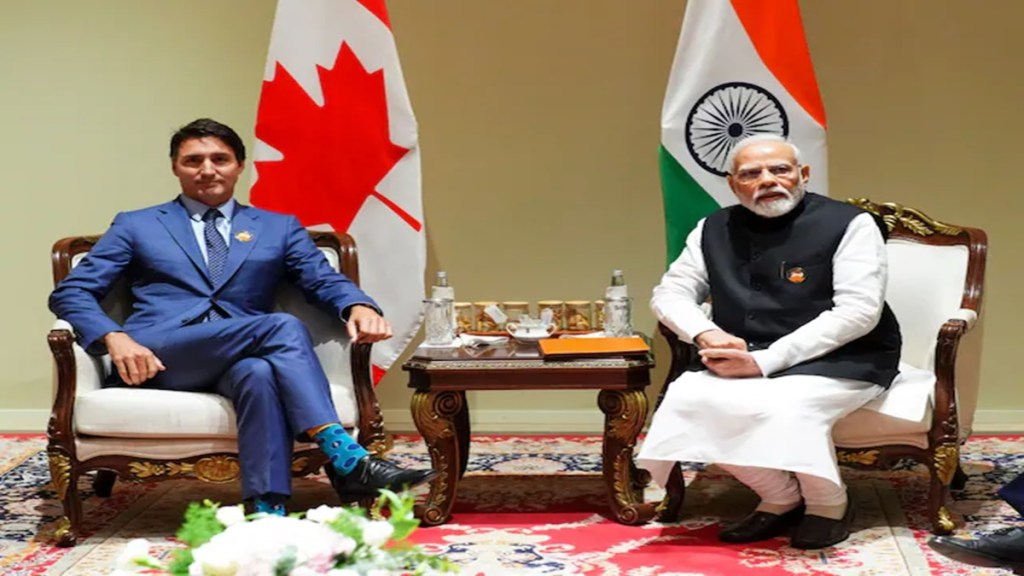By N Chandra Mohan
Indo-Canadian diplomatic relations deteriorated after Justin Trudeau, Canada’s Prime Minister, stated on the floor of Parliament last September that his country’s security agencies were investigating “credible allegations of a potential link” between Indian government agencies and the killing of a Khalistani Sikh leader, Hardeep Singh Nijjar. Relations nosedived with fresh allegations from Ottawa that this assassination of a Canadian citizen on Canadian soil was part of a broader campaign of state-sponsored coercive behaviour against Indian dissidents living there and it identified six Indian diplomats serving there, including the high commissioner, as “persons of interest” for being involved in “clandestine activities” over Nijjar’s killing.
This was followed by tit-for-tat diplomatic expulsions by both Canada and India, reminiscent of our strained relations with Pakistan. India has strongly rejected Canadian charges as “preposterous” — as it has not shared a shred of evidence — and ascribes them to the political agenda of the Trudeau-led government that crucially depends on the support of individuals who have openly associated with an extremist and separatist agenda regarding India. The escalation ladder of these allegations has also been attributed to Trudeau’s deposition before the Foreign Interference Commission on Wednesday to explain the charge that his government had been derelict in preventing Chinese interference in domestic politics. For Trudeau it is India that is interfering.
The question naturally is, where do matters go from here? Canada’s foreign minister has not ruled out imposing sanctions against India. India, for its part, reserves the right to take further steps in response to the Canadian government’s allegations against Indian diplomats. The way forward is for India to respond like it is doing with a criminal case in the US brought against suspects in a failed murder plot against Sikh separatist Gurpatwant Singh Pannun. Last year, the Biden administration confronted the Modi government with intelligence that an officer of the Research and Analysis Wing was behind the assassination attempt. US prosecutors last November indicted an alleged drug trafficker, an Indian national, of seeking to hire a hitman to carry out the killing. Before Prime Minister Modi’s recent visit to the US, summons was even issued to the national security advisor who subsequently chose not to be a part of the official entourage.
India has denied these allegations — like it has with Canada — but it has sent an investigation team to the US tasked with probing these charges that government-linked people were involved. The US State Department spokesman has issued a statement that India is not cooperating with Canada on its investigations on Nijjar’s killing: “When it comes to the Canadian matter, we have made clear that the allegations are extremely serious and they need to be taken seriously. We wanted to see the government of India cooperate with Canada in its investigation. Obviously, they have not chosen that path.” India would do well to heed the advice of the US and similarly send an investigation team to Canada to probe its allegations, which are no doubt based on inputs from the Five Eyes, an alliance of agencies of the US, UK, Canada, Australia, and New Zealand.
That said, both nations must draw back from the precipice and resume diplomatic relations as both are interdependent. Canada’s two-way trade in goods and services with India hit $19 billion. Canada has invested $3.9 billion in India from April 2000 to June 2024, much of it from portfolio investors. Pension funds have cumulatively invested $54 billion. India’s outbound investments to Canada were relatively more modest at $2.1 billion. Around 600 Canadian companies have a presence in India, while around 30 Indian companies have operations in Canada. However, the deepest link is the vast Indian diaspora as two million persons of Indian origin live in that country. Many of our students have gone for educational opportunities and hope to work in Canada. They stare at an uncertain future if bilateral ties that have hit rock-bottom are not resolved.
The author is New Delhi-based economics and business commentator.
Disclaimer: Views expressed are personal and do not reflect the official position or policy of FinancialExpress.com. Reproducing this content without permission is prohibited.

